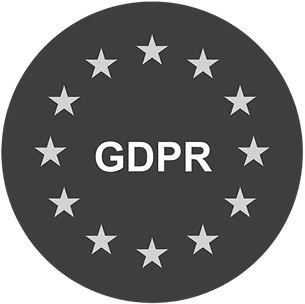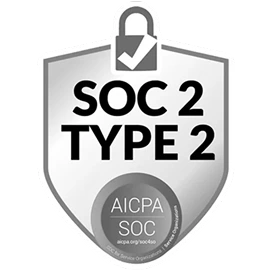When you're growing fast, people are everything.
The employee experience—hiring through to career progression—is critical to who you hire and how long they'll stay working for you.
In this episode of Support Insights, we tackle the best practices for hiring, onboarding and retaining a new team.
Our guest today is Luis Pinto, Director of CX at Remote.
Remote just raised $150m Series B investment round, and they’re going through a hyper-growth period—where Luis must hire fast and scale alongside new customers.
By the end of 2021, Luis alone will have added a further 60 customer success, customer service and CX professionals to his team—he's interviewing constantly and has a ton of unique tips for successfully building a team.
We cover:
- Interview skills and best practice
- Common mistakes managers make
- How to onboard new hires effectively (especially in a 100% remote company like Remote)
- Maintaining quality under pressure
- The keys to employee experience and retention
Hope you enjoy the episode!
If you do, hit subscribe and join us our community to get weekly content like this in your inbox.
On this page:
- Q&A-The best bits summarised below.
- Podcast-The full interview in audio format.
- Video-The full interview in video format.
Mini-Q&A: Remote hiring best practices with Luis Pinto
All the below text is paraphrased from the full interview.
How many people are you hiring?
Between March 2021 and August 2021 we more than doubled our headcount in both CX and the overall company.
As a customer experience team (which covers customer support, customer success and customer experience) our goal is to grow to 80 by the end of 2021. We're 20 now.
You need to hire fast, how do you maintain quality under so much pressure?
The first rule is to be best friends with your recruitment team. Work very closely with them. Once they know what you're looking for and who will fit into your team, they'll help you pre-screen and find the best applicants.
My second tip is to leverage your network. Most roles in the CX space don't require a technical background, you just need to learn fast. Anyone can be taught but you must look for people with the right drive, mentality, and most importantly a customer-centric mindset.
My third tip is to start an internal referral programme. If your employee experience is excellent like ours, your team will start to refer their friends and their network.
What's your best tips for finding out who someone really is during an interview?
I have lots of tips, but a lot of spotting talent comes with experience. Firstly, I'm sincere and honest with every interviewee, so everyone is relaxed and open.
It's important that I understand the interviewee's trajectory in life and work, what goals they have, and that they align with the position and the company. From there, I see if they have empathy and there's some chemistry between us, that way I'll know if we will work well together.
To give a few specific examples:
- Give them lots of time to speak.
- Ask for concrete examples from previous positions.
- Give them practical scenarios to see how they would react in those situations.
- Ask them more philosophical questions like, 'what does it mean to be customer-obsessed?'
One thing that's critical is to embrace your company culture, and teach it in every interview. When you truly understand your companies DNA, you can hire for it. DNA is hard to teach people.
Related podcast: How to build a customer-obsessed culture.
What common mistakes are there in hiring?
There are lots of mistakes you can make. Here are three I see often:
Firstly, it's easy to think that transmitting company DNA is only important in the interview process. We should be doing that every single day actually.
Secondly, as a hiring manager you should not put on a poker face and sell the company in the interview process. This only creates false expectations and that ends badly for everyone.
At the same time, and this my final point, remember you’re being interviewed as well by the candidate. Nowadays, especially in the technology space, it’s common for candidates to be fielding multiple proposals. So you have to beat a lot of competition.
You're a 100% remote company. How do you onboard people effectively in that environment?
It's not easy and you have to work on improving it all the time. When I started at Remote, the process was entirely different to what it is now—which shows how far we've come.
We do some great things. Every employee gets:
- An onboarding package.
- A designated buddy—someone who follows up with them everyday.
- The founder has a session with every new joiner on day one.
- Everyone across the business is made available to new employees, so new hires are properly integrated.
It is very face paced at Remote, so we do make it really clear in the interview process what to expect. We don't want any surprises, and that makes onboarding a smoother processes.
We're also building a robust internal knowledge base, too. In order to make some of onboarding self-serve.
What's key to employee retention in a remote work environment?
It all starts with the very first interview, and then the interview processes and onboarding should be flawless.
As a manager, you need to ensure there is a strong human factor to employment. Remember, where you work and your job is a big part of life.
That person will talk with everyone, friends, family, their network. So don't make the mistake of thinking people don't speak to each other about their experience.
As a manager, you need to be available to listen whenever they need you. If not, you'll get a surprise when they quit—by that time it's too late.
Here are three more things to remember for retention:
- Career progression: Everyone needs to have a trajectory, a clear path and mission to accomplish.
- Remember what it's like to be an employee. Do the opposite of most of bad bosses, and do what you loved.
- Stay humble: You only exist as a manager because of your team. You exist because of them. Not the other way around.
.svg)
-min.webp)



.svg)





